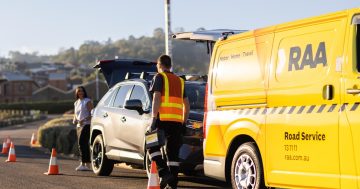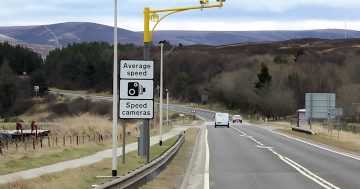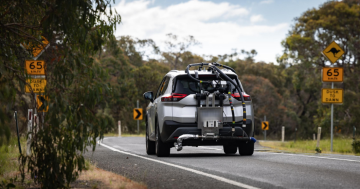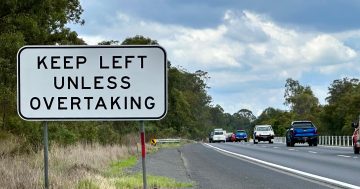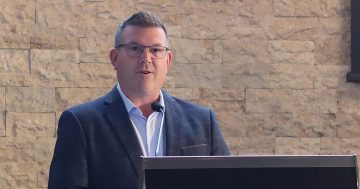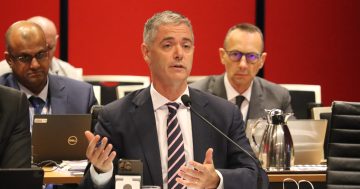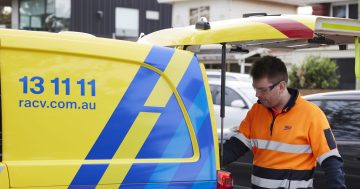 1. This week 10 years ago, Comcare warned office workers their health could be at risk if they sat at their desks all day without a break.
1. This week 10 years ago, Comcare warned office workers their health could be at risk if they sat at their desks all day without a break.
It released results from a trial that found taking regular breaks from sitting could improve wellbeing.
Chief Executive of Comcare, Paul O’Connor said the survey found that the typical office worker spent over two-thirds of his or her day seated and inactive.
It also found that even 30 minutes of exercise a day could not offset the high risk of cardiovascular disease and death associated with prolonged sitting.
“Comcare is currently piloting sit/stand workstations to reduce sedentary time by promoting more standing and increased movement,” Mr O’Connor said.
“Initial results indicate a reduction in sitting time across the day for the workers who were given these special workstations,” he said.
2. The NSW Parliament passed a new law establishing a Public Service Commissioner.
Premier, Barry O’Farrell said he was determined to make the NSW public sector the best in the nation and a leader in the world and announced that former senior NSW and Commonwealth Public Servant, Graeme Head would take the position.
“A Public Service Commission will assist the Public Service in a renewed focus on service delivery and value for the people of NSW,” Mr O’Farrell said.
“It will set unambiguous goals, clear policy directions, transparent processes and accountability; the Commissioner’s role will be to promote the core values of integrity, trust, service and accountability,” he said.
3. Sydney City’s car-share policy was awarded the first International CarSharing Association Award for Excellence.
Sydney Lord Mayor, Clover Moore said the policy met all the award criteria and set a benchmark for Local Governments around the globe.
Cr Moore said the award showed Sydney was leading the way in reducing congestion and air pollution by encouraging car-sharing.
“Sydney residents have well and truly embraced the considerable benefits of car share with an average of 200 people joining each month, pushing membership close to 7,500,” Cr Moore said.
“One car-share vehicle can replace up to nine private vehicles on our congested roads and research has shown that about a quarter of car-share members have deferred the purchase of a car or have sold their vehicle since joining the scheme,” she said.
4. NSW Attorney-General, Greg Smith announced that the State would be home to the new National Legal Services Board and National Legal Services Commissioner.
Mr Smith said the regulators would play the key role in reforms to the legal profession — a sector that generated $13 billion in income a year.
“NSW will ensure that the Board is established on time, within budget and in premises that befits its role as the peak national regulator and the face of the Australian profession internationally,” Mr Smith said.
“NSW, Queensland, Victoria and the Northern Territory are taking part in the reforms, covering around 85 per cent of Australia’s practising lawyers,” he said.
5. Also in NSW, Premier, Barry O’Farrell announced changes to the Crimes (Sentencing Procedure) Act 1999so that drivers who committed serious offences with children in their vehicles would face tougher sentences.
“This means courts will be expected to impose tougher penalties on drivers convicted of major offences where a child under 16 years of age is in the vehicle,” Mr O’Farrell said.
He said he was sickened by reports that parents were drink-driving and even driving under the influence of drugs while children were their passengers, and the new rules would apply to those convicted of a range of offences including drink and drug driving; engaging in a police pursuit; and failing or refusing to undergo alcohol or drug testing.
6. Also this week a decade ago, Victorian Minister for Roads, Terry Mulder and Commonwealth Parliamentary Secretary for Infrastructure and Transport, Catherine King announced a world-first driver research project to try to reduce the number of young people killed on the State’s roads.
Mr Mulder said the P Drivers Project would focus on high-risk behaviours among P-plate drivers with the aim to change behaviour to improve safety.
“It’s a sad fact that young drivers are some of the safest drivers on our roads while on their L plates but are most at risk of crashing in the first six–12 months of driving on their Ps,” Mr Mulder said.
“We are calling on the community and asking everyone to encourage young drivers to get involved and help keep them and their mates safe on our roads,” he said.


